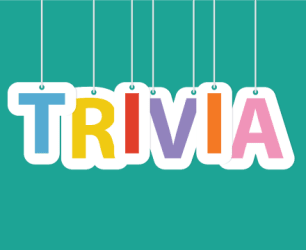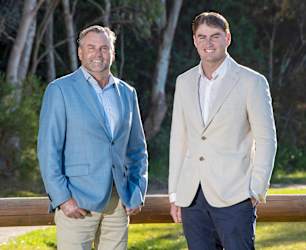Austinmer author Claire O'Rourke launched her book Together We Can at Coledale Community Hall on Sunday, 14 August. Thanks to Claire's publishers, Allen & Unwin, we have an extract from the book to share.

Coming home
I first met Yael Stone when she wandered into my office with a friend in late summer 2020, when the last of the Black Summer fires were smouldering and the news was beginning to whisper of something called a coronavirus, emerging across the planet. A quick google revealed that Yael was actually a really famous actor, who starred in Orange is the New Black and had a gazillion followers on social media (friends, I really am a gigantic nerd), and that we were practically neighbours, both recent arrivals to the northern Illawarra.
Stone had just made headlines by pledging to dramatically reduce international travel to minimise her contribution to climate pollution, a choice that came with the inevitable consequence of relinquishing her American ‘green card’, the pass foreigners fight hard to secure. Giving up the privilege to work and live in the United States is a brutal decision for any performer on a soaring career trajectory to make.
But reflecting on that summer, Stone said the fires were a multi-sensory experience that overturned her confidence in her plans and called her ideas of how life would evolve into question. Smoke filled her lungs, leaving the realisation that she couldn’t depend on the air being clean anymore. Performing on stage in Sydney, she was preoccupied by overwhelming thoughts that she’d be caught in the city as her tiny family was being evacuated from their home 60-odd kilometres away. There was the constant terror at night too.
‘That’s probably where this huge anxiety started for me,’ Stone said. ‘I think I’ve probably experienced anxiety all my life, but I didn’t have a name for it. It just whipped up; it took a very strong form of an existential crisis. I was just completely freaked out.’
A return to the United States to continue the pursuit of her acting career was imminent, but Stone couldn’t shake the responsibility she felt from the hefty carbon load she carried from frequent flying. Frantically searching for low-carbon bandaid solutions that would support the long-awaited plan to split her life between Australia and Austin, Texas, Stone evaluated some out-there options, but cruise ships and yachting across the ocean Greta Thunberg–style were quickly discarded.
‘I suddenly realised that this is a life-reconfiguring question; it’s bigger than finding just a quick solution.’
A couple of weeks later, after confronting some pretty intense nerves, Stone had the conversation with partner Jack that would change the course of their life together forever, and begin to calm the emotional whirlpool Stone was caught in. ‘I remember we sat in the driveway of our house and I just said, “I don’t think I can keep living like this, it doesn’t feel right.” And because he is the person that he is, he was completely open to that.’
Saying those words began a transformation that Stone is discovering, but no matter where things lead, there’s no question she is 100 per cent all in when it comes to climate action. ‘That was the start of the journey and I’m still really, really early on in this whole thing, but I have to take it really seriously,’ she said. ‘We don’t have the time, so let’s just go great guns, let’s just try to do this.’
Stone decided as a first step to connect with her community and quickly learned how important coal is to the history and culture of this place, beer and black diamonds aside. ‘This is people’s history, and history is important and identity really important,’ Stone said. ‘What do coalmining and steel- making mean? They mean unionised jobs, protected jobs that have good benefits, that put food on the table for families and that are inherited over generations, and there are all the industries that spring from coal-mining activity too.’
She added: I started to see that I’ve been really judgemental. I’d blown in from Sydney, via seven years in New York, and it’s not my place to come in and judge the history. It’s my place to try to understand it, to integrate, to learn about the stories and work out what is this complex relationship between the future and the past.
Stone started making a documentary film, which has evolved into a creative approach to connect climate action to practical support for local transition. The friendly name of the project, Hi Neighbour, embodies the approach, which aims to protect workers and remove obstacles of transition by building community energy projects and directing profits to a fund that supports retraining opportunities for any local worker looking to move into renewables.
‘Is there support for those workers? Not really,’ Stone said. ‘We give up our paper coffee cups and they give up their jobs.’
When I caught up with Stone, her idea is gaining traction in the Illawarra, with big industry, unions, councillors and workers interested in talking and the organisation newly registered as a not-for-profit organisation. ‘I’m able to connect people with other people, and start to feel those branches grow, and that feels really empowering,’ Stone said. ‘Hopefully we can break down that rhetoric and really damaging politicking that’s been built up over years and start to have a vision of a future that’s safe and protected for everybody.’
Hi Neighbour emerged from Stone’s connection with a place that she intends to be her forever-home. ‘When you invest more in a community, you get back more from the community,’ Stone said. ‘That’s a great gift of being in one place.’
Other rewards are many: Stone reflected on how she had become closer to her extended family after being away for more than a decade, how her hands were closer to the soil, seeing her garden grow, the seasons shift, and knowing when the winds are changing. One pathway has closed, but step by step she’s discovering new tracks and building new skills along the way.
‘The biggest thing is that rather than a load on my back, this has been a great way to free myself and see myself in a different way, rather than feeling limited by my understanding of what I’m capable of,’ Stone said.
‘What this waking up has given me is a realisation that I can make things, I can create things myself, and I can inspire people to join me. Rather than just like a victim of whatever’s coming down the line, I feel part of trying to change that tide.’
This is an edited extract from Together We Can by Claire O’Rourke, RRP $32.99, published by Allen & Unwin, out now.







